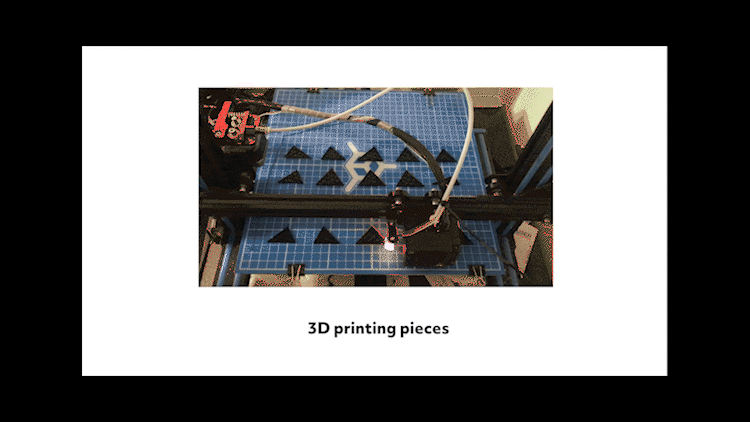COVER PAGE
————————-
1st digital model
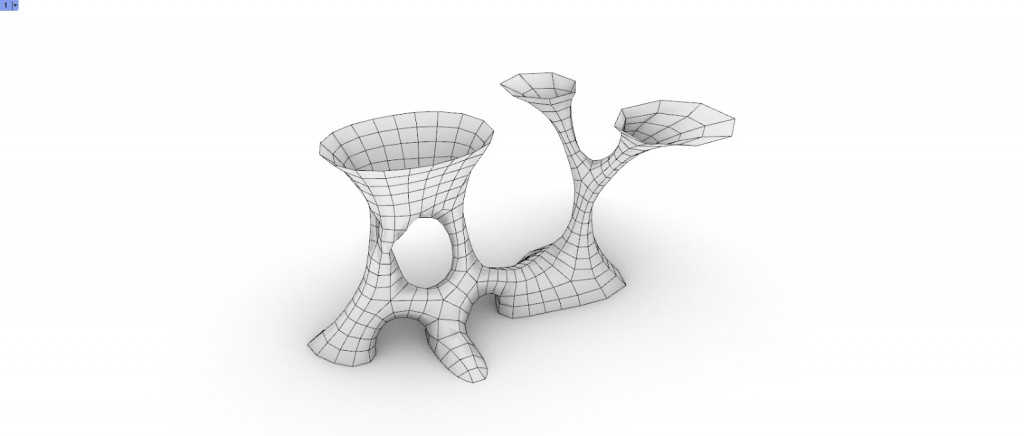
Our objective is to generate a pavillon with a complex geometrical shape. This first test geometry was composed by 4 columns that support big open round shape. For physical model, we have tested 4 different methods below, shortest walk, Minimum spainning trees, all shortest path and K-mean clustering.
Shortest walk

Minimum Spainning Trees
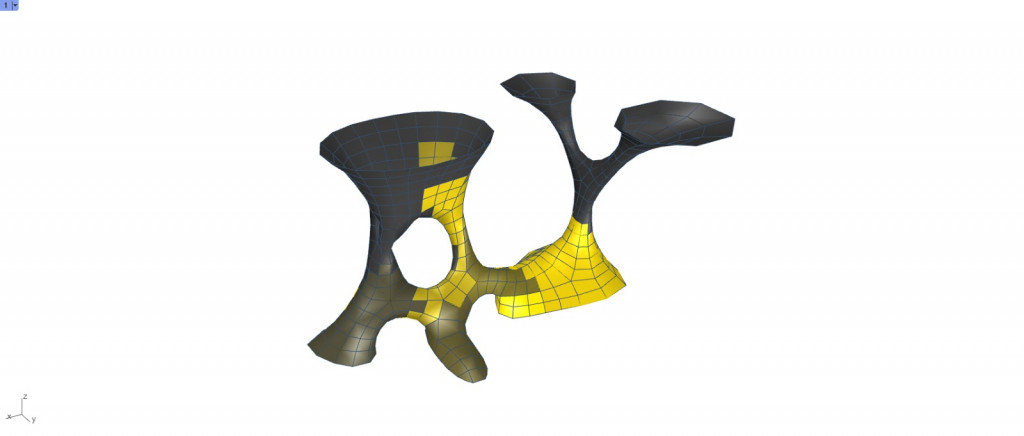
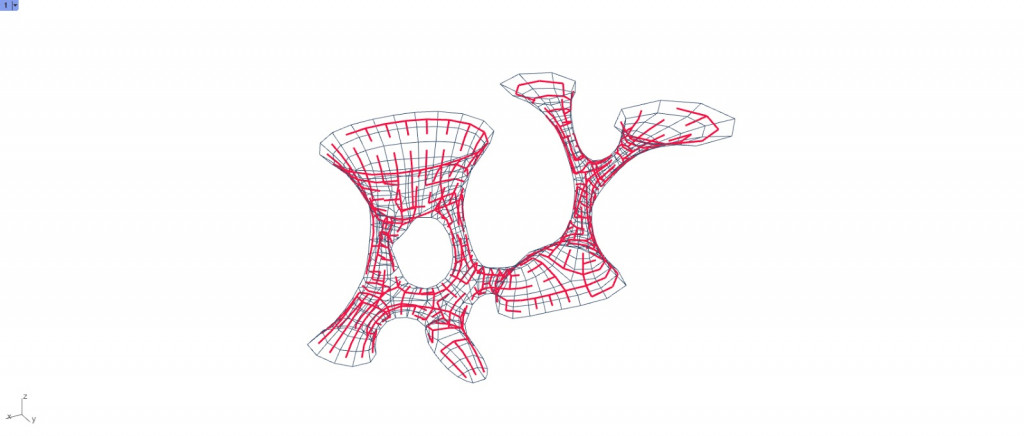
All Shortest Path
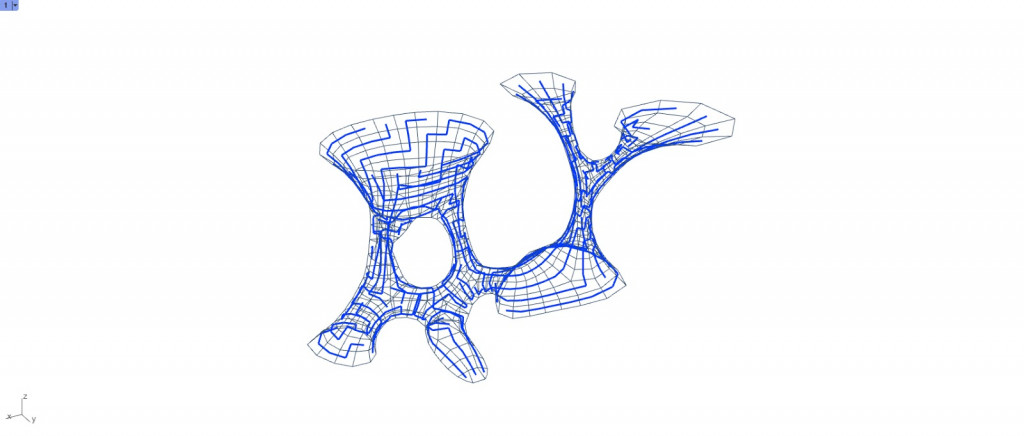
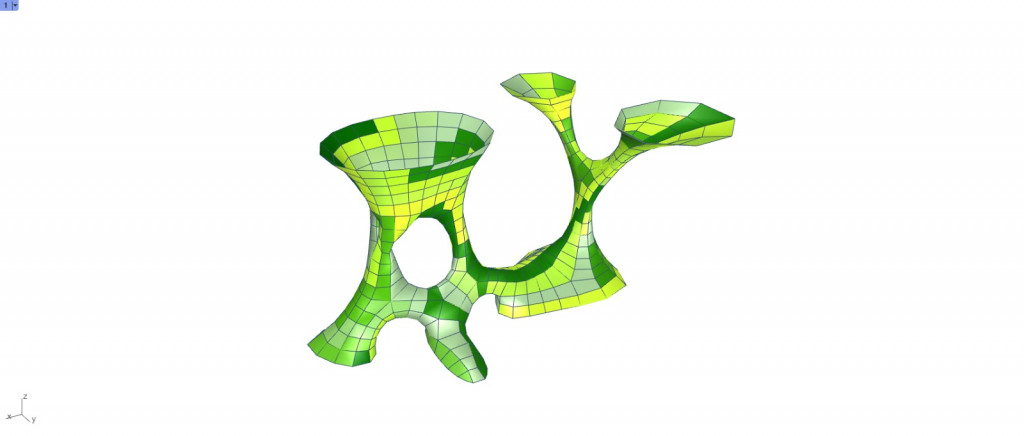
K-Mean Clustering

Our 1st inspired 3D model had over 390 mesh surfaces. Few test with re-mesh deformed original geometry. Therefore we decided to change 3D model.
2nd digital model

At the second digital model, we made a vault that was presented by Block Research Group. The reason that we used existing vault design was to make a phisical model by reinterpreting existing mesh with 3 algorithmic methods ; All shortest path, Minimum spanning trees and K-mean clustering.
The original mesh was composed by about 500 quadrilateral meshes.
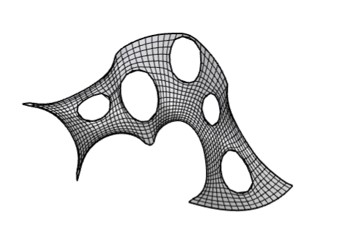
All Shortest Path
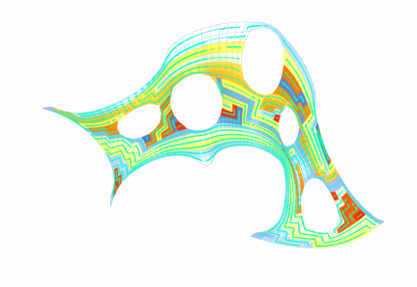
The original meshes was tested with the all shortest path method but as we can see on the image above, some strips are deformed or too narrow. So that we re-meshed with triangular meshes in order to reduce the meshes’s number. Final our vault has 196 triangular meshes.
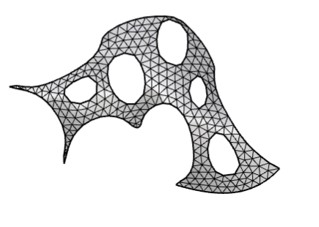
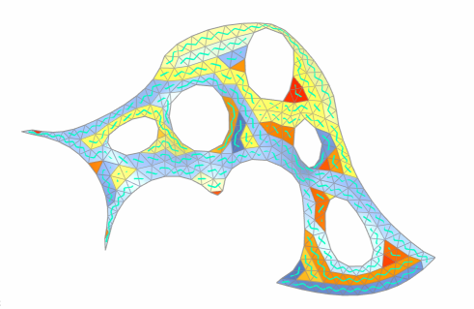
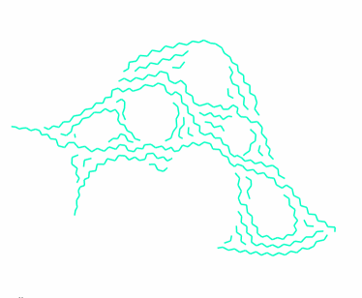
After the all shortest path test, we have 45 strips in total.
Physical Model
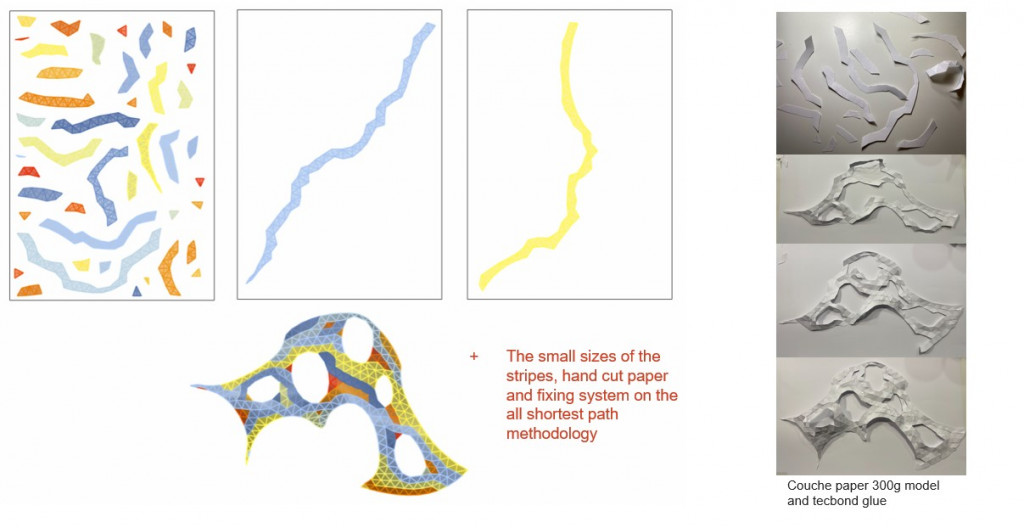
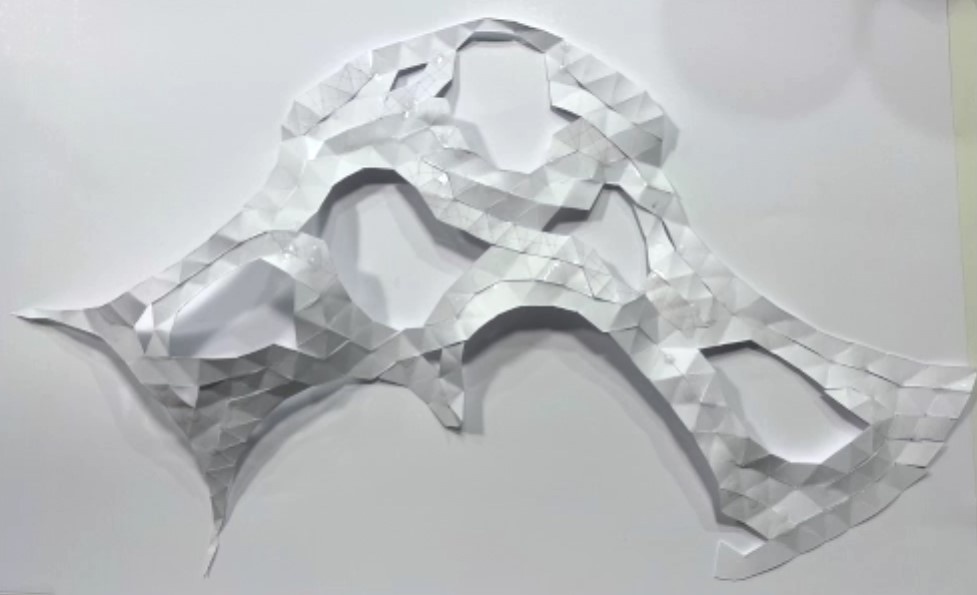
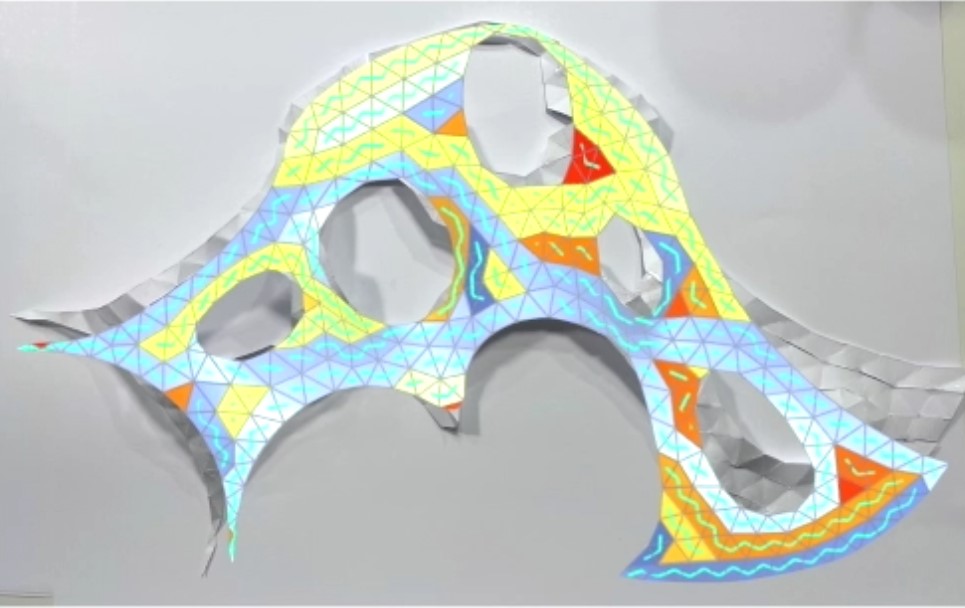
The first physical model with paper couldn’t support itself because of its properties of lightness and its shape is also different then the 3D model.
Minimum Spanning Trees
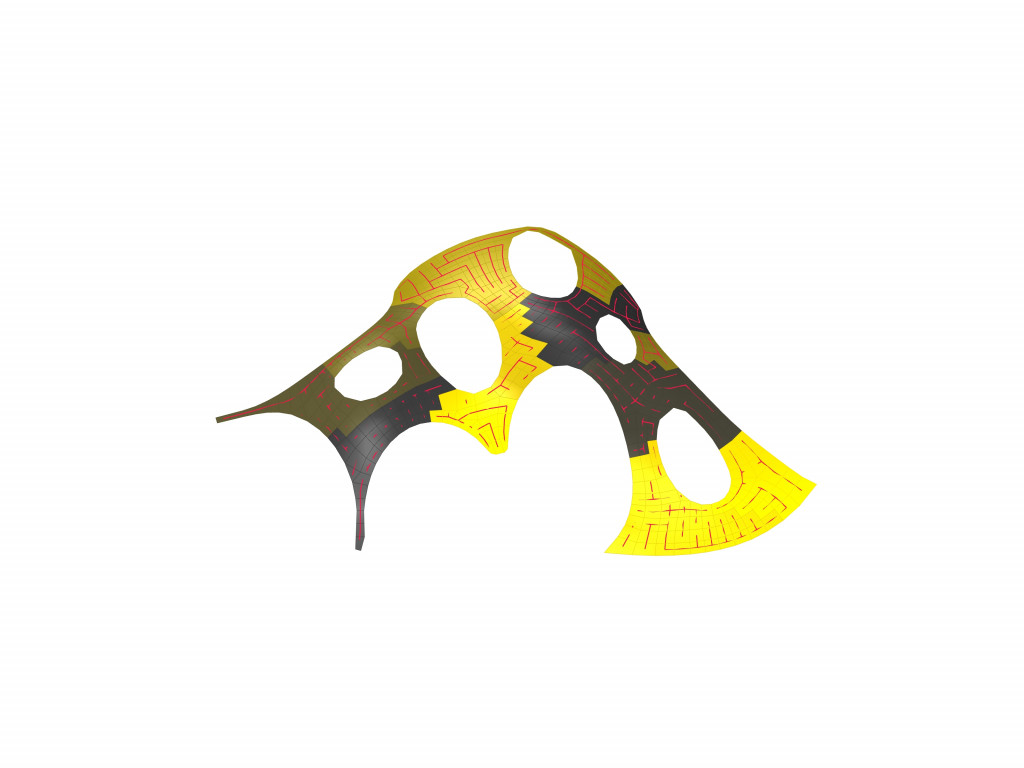
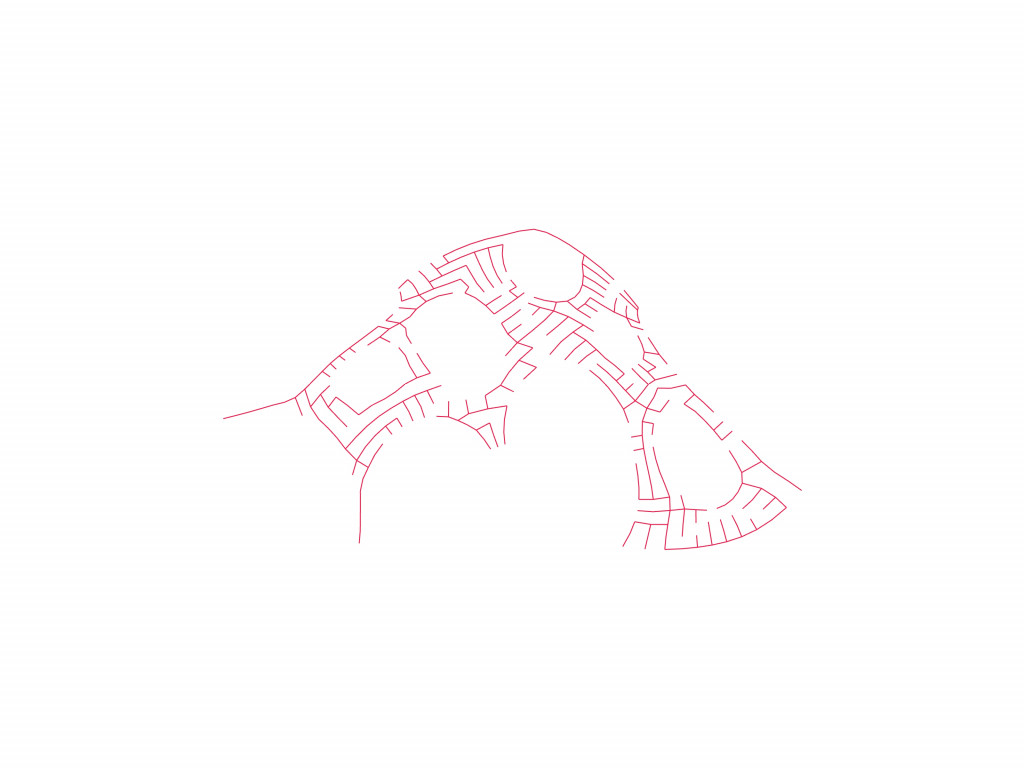
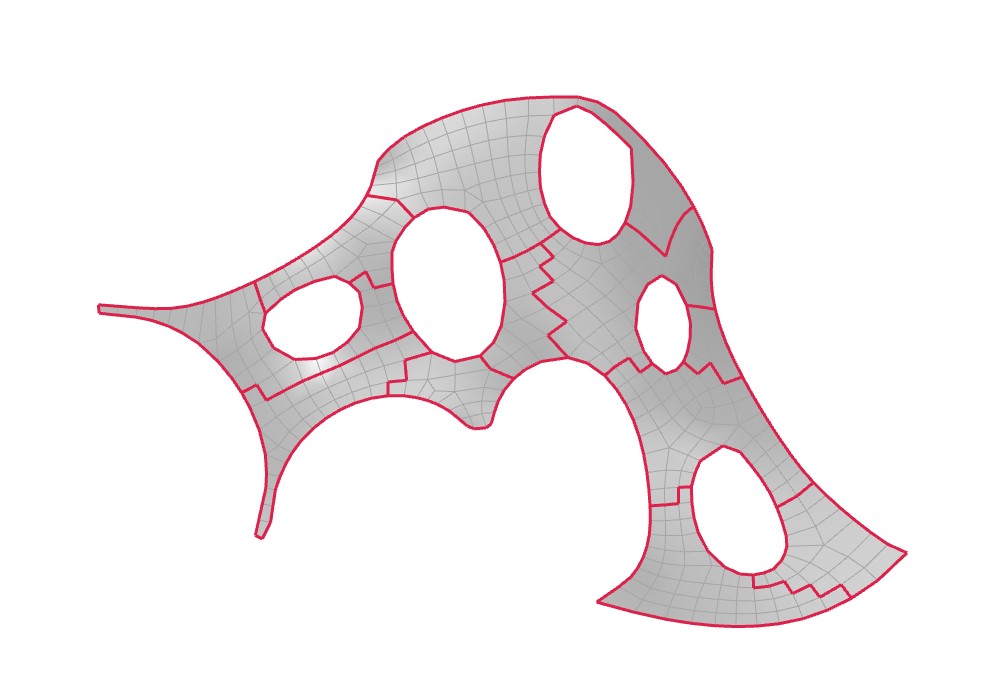
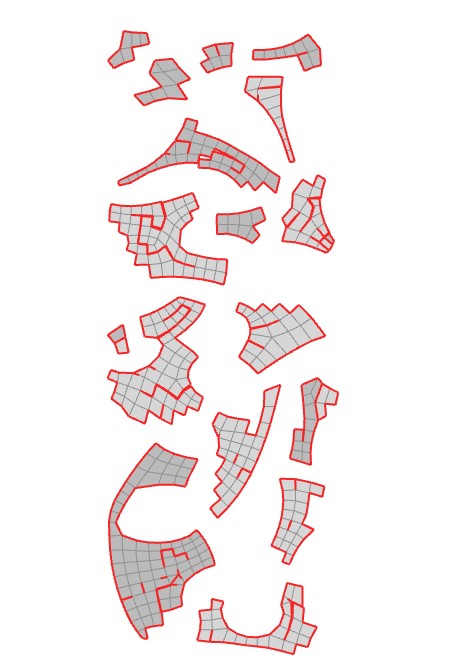
With quadrature re-mesh, we got 371 meshes and 18 pieces by a minimum spanning trees.
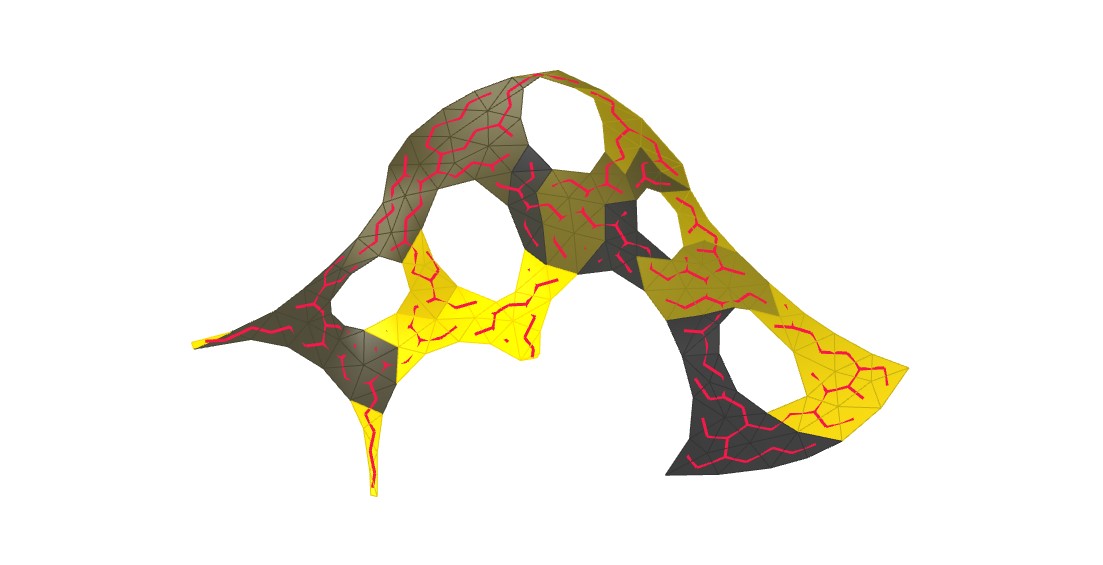
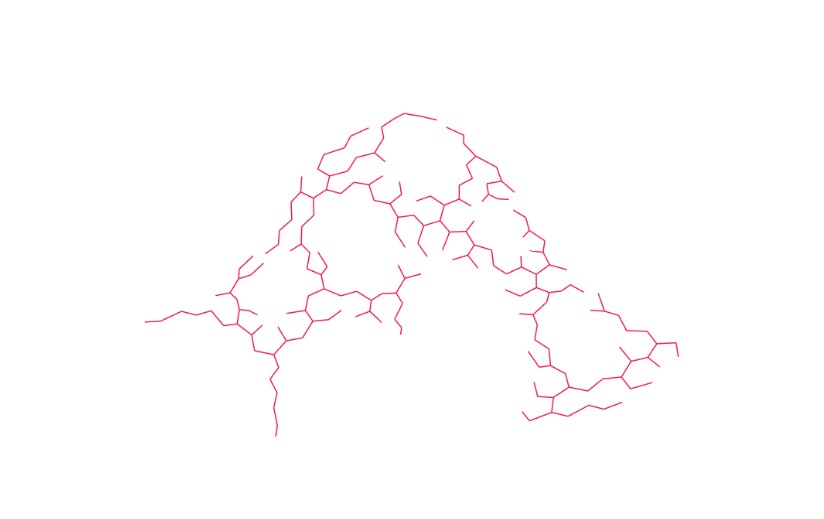
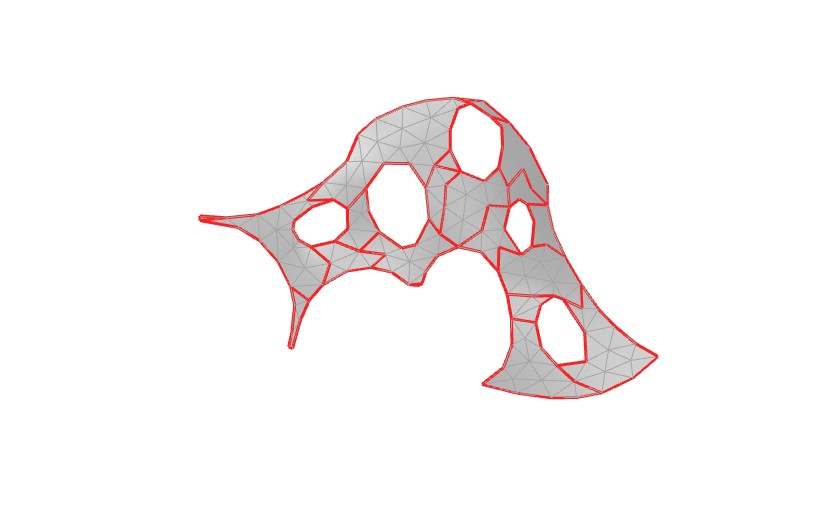
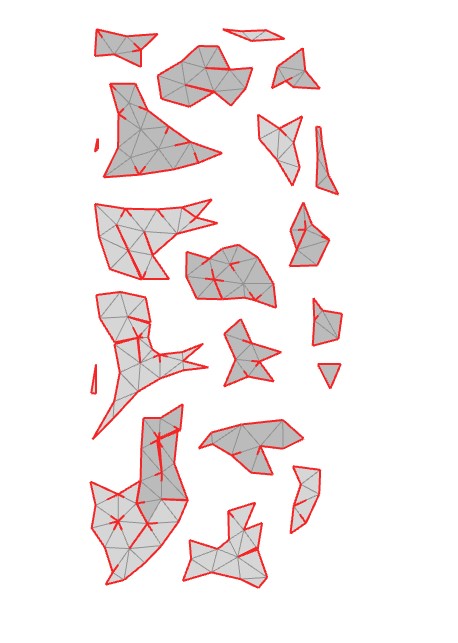
With triangular re-mesh, we got 192 meshes and 19 pieces by a minimum spanning trees.
Physical Model
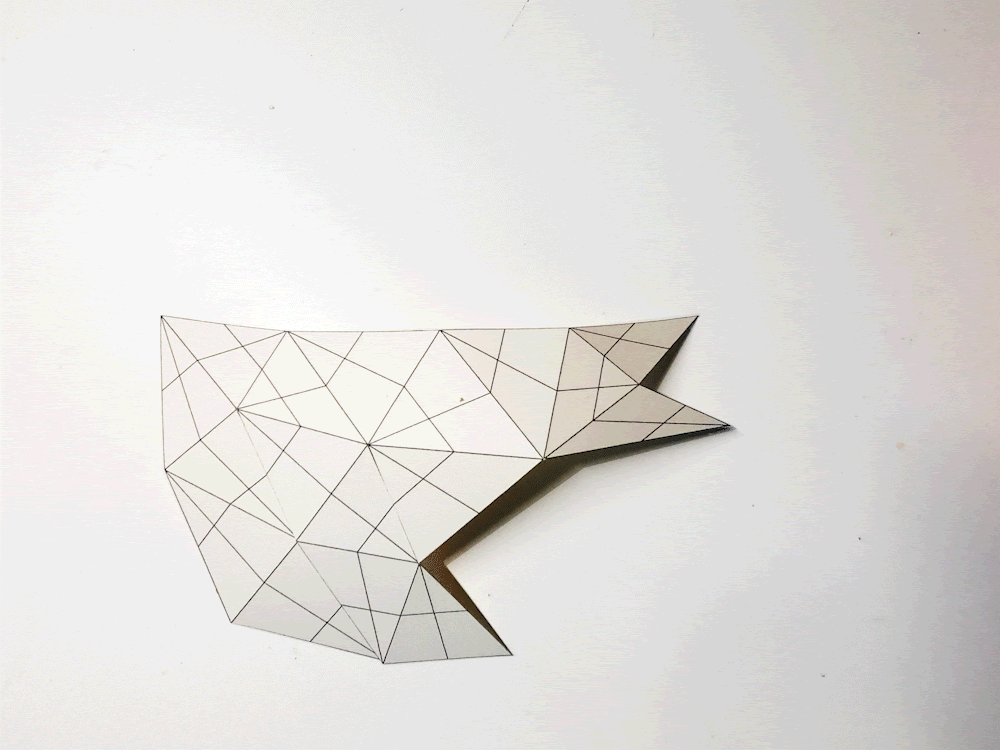

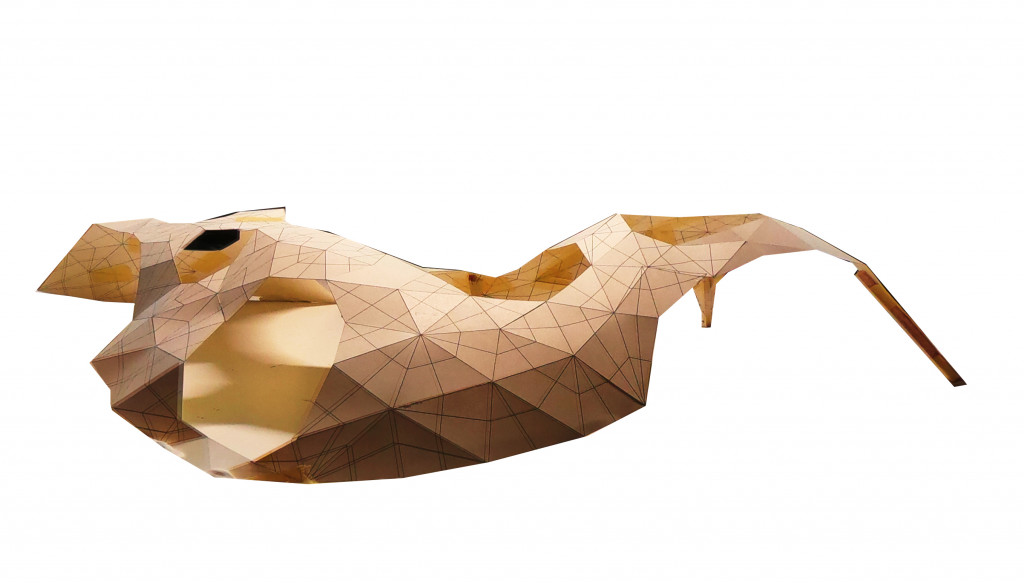
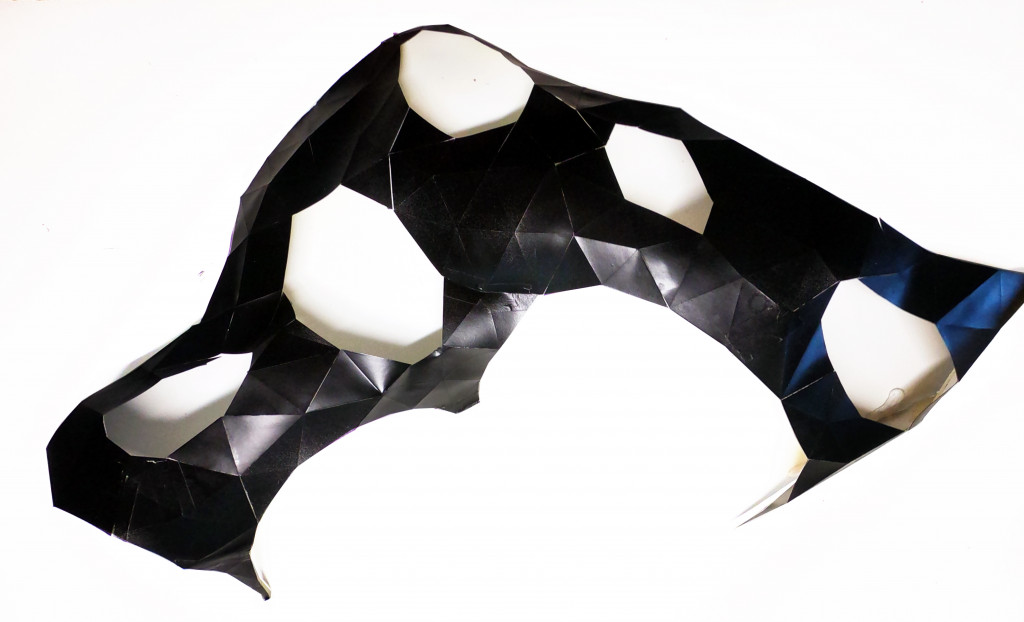
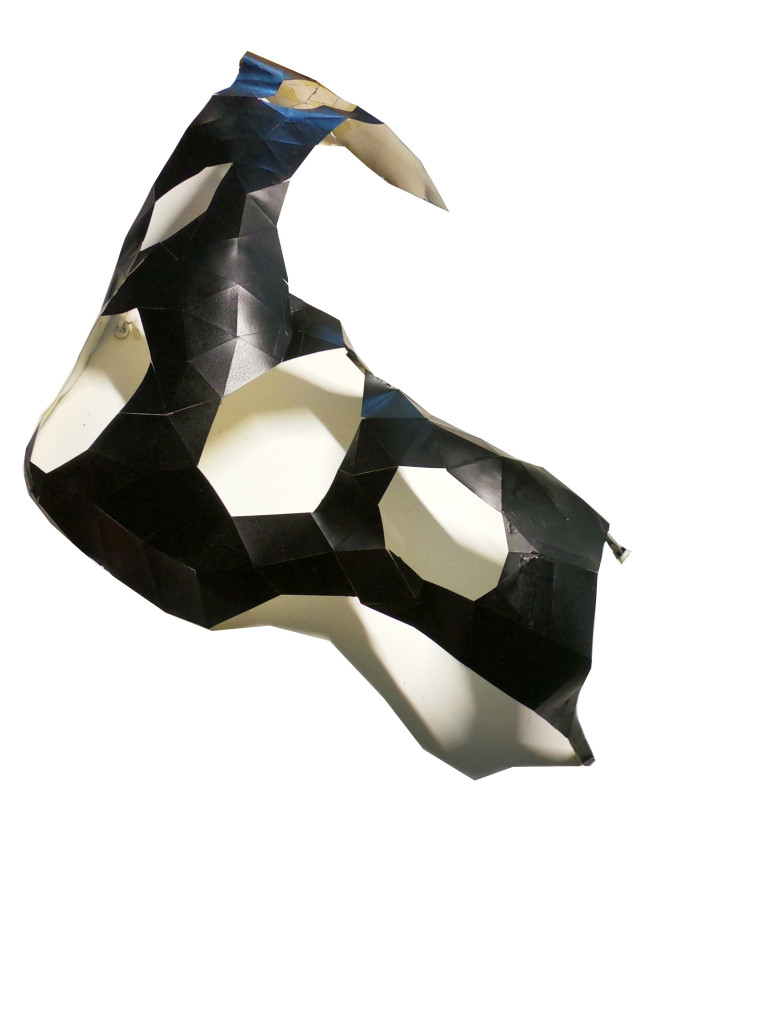
This model used a thicker paper then the first one. The shape of 3D model and physical model are not too much different thanks to the cut pieces. In fact, strips at the 1st model are long so that it was weaker to be auto-supported.
K-Mean Clustering
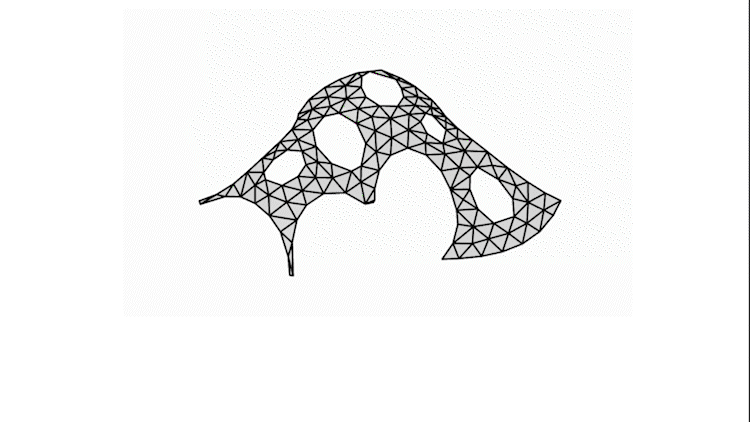
For the 3rd test, we do K-Mean clustering. The image above is showing different colors by clustering number. Here, we decide to cluster by 4 groups.
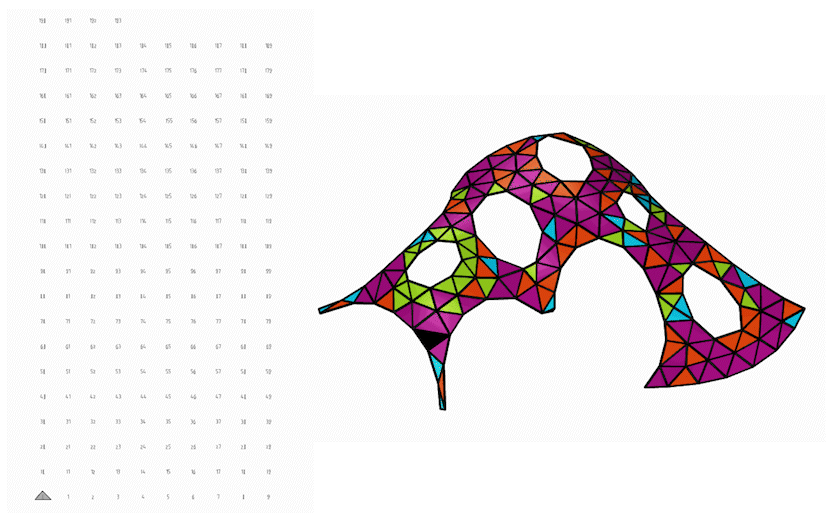
Then, extract all the mesh faces to 3D print it.
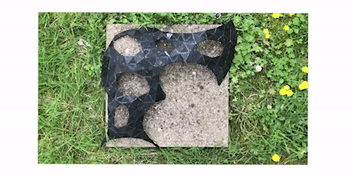
Conclusion
The first and the second models with paper material couldn’t keep its vault shape because it was too light. We may reinforce strips where is more curvature. At the 3rd test with 3d printed PLU material was perfect to support the vault weight itself. Digital model for fabrication should be tested several times before starting final model.
